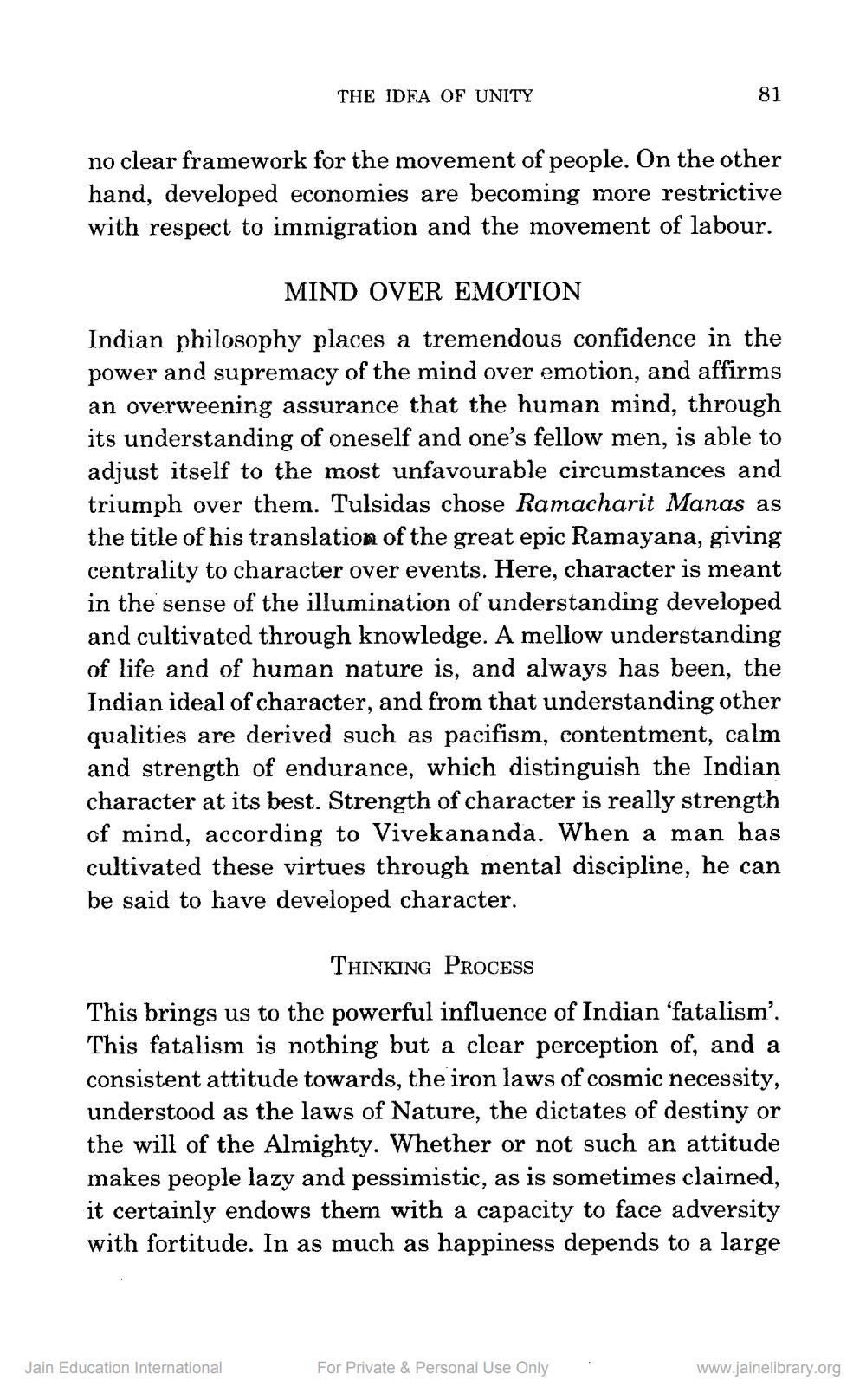________________
THE IDEA OF UNITY
81
no clear framework for the movement of people. On the other hand, developed economies are becoming more restrictive with respect to immigration and the movement of labour.
MIND OVER EMOTION Indian philosophy places a tremendous confidence in the power and supremacy of the mind over emotion, and affirms an overweening assurance that the human mind, through its understanding of oneself and one's fellow men, is able to adjust itself to the most unfavourable circumstances and triumph over them. Tulsidas chose Ramacharit Manas as the title of his translation of the great epic Ramayana, giving centrality to character over events. Here, character is meant in the sense of the illumination of understanding developed and cultivated through knowledge. A mellow understanding of life and of human nature is, and always has been, the Indian ideal of character, and from that understanding other qualities are derived such as pacifism, contentment, calm and strength of endurance, which distinguish the Indian character at its best. Strength of character is really strength of mind, according to Vivekananda. When a man has cultivated these virtues through mental discipline, he can be said to have developed character.
THINKING PROCESS This brings us to the powerful influence of Indian 'fatalism'. This fatalism is nothing but a clear perception of, and a consistent attitude towards, the iron laws of cosmic necessity, understood as the laws of Nature, the dictates of destiny or the will of the Almighty. Whether or not such an attitude makes people lazy and pessimistic, as is sometimes claimed, it certainly endows them with a capacity to face adversity with fortitude. In as much as happiness depends to a large
Jain Education International
For Private & Personal Use Only
www.jainelibrary.org




